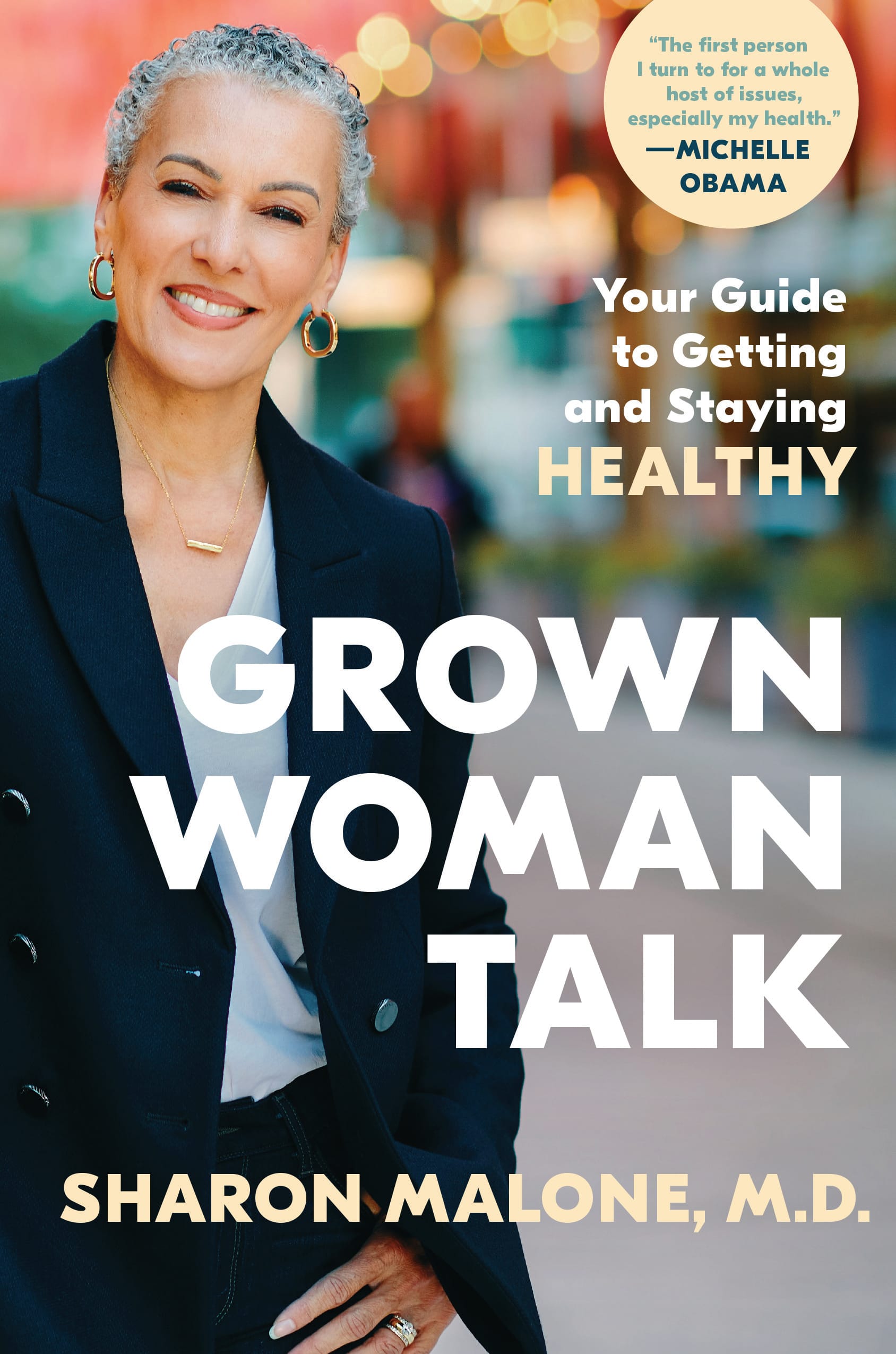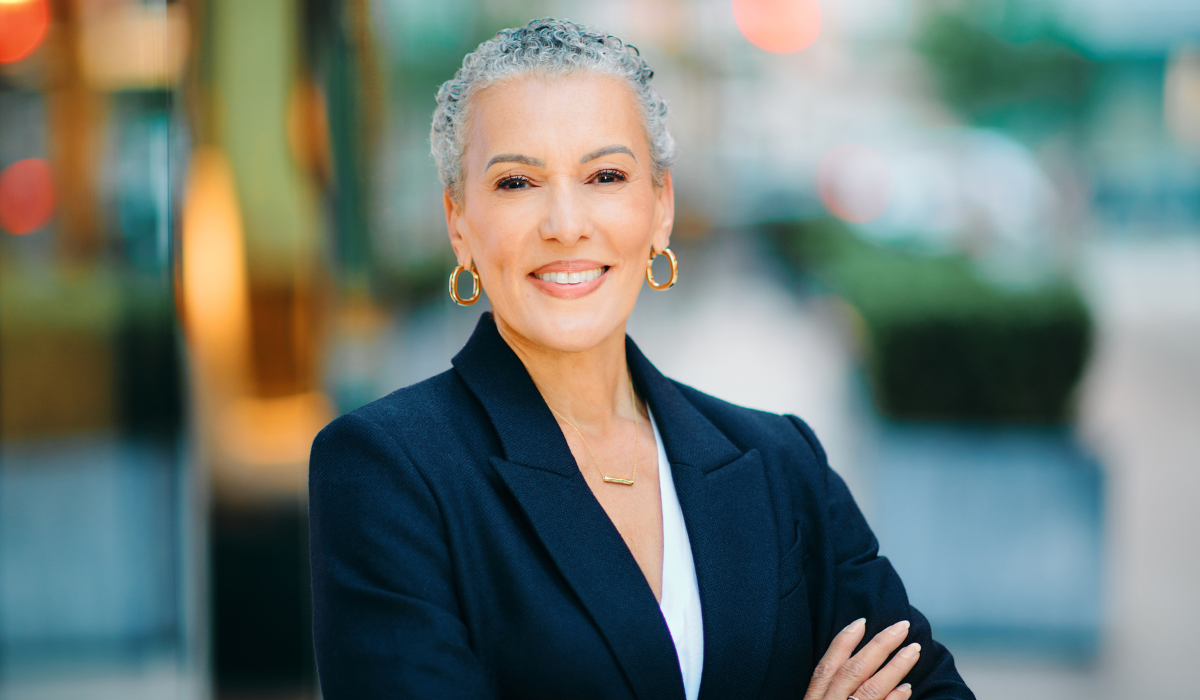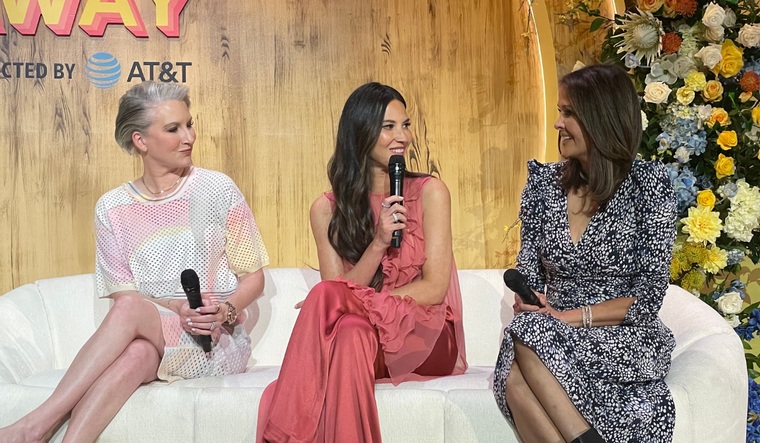Dr. Sharon Malone Wants All of Us to Feel More Empowered When it Comes to Our Health, and She Tells Us Exactly Where to Start
These days, health information flies at us from all angles—yet it’s rarely helpful. We’re bombarded with news about often contradictory health advice that leaves us wondering what to eat and how to exercise. We’re warned about our increasing risks of countless diseases. We’re dismissed or shamed when we talk about our symptoms with our doctors.
It’s no wonder so few of us feel truly empowered when it comes to our health.
Yet a sense of empowerment is what all of us—especially women, and women of color in particular—need most, says Sharon Malone, MD, an OB/GYN and certified menopause practitioner. In her new book, Grown Woman Talk: Your Guide to Getting and Staying Healthy, Dr. Malone aims to help all of us realize we already have everything we need to take charge of our health, and she shows us how to use it.
This week, The Sunday Paper sat down with Dr. Malone for her take on what all of us can do to feel like we have more agency over our health and exactly where to start.
A CONVERSATION WITH SHARON MALONE, MD
What do you want all of us to know about the importance of the patient-doctor relationship? What should we look for in our healthcare providers?
One of the reasons why I wrote this book is to explain to people that the nature of the doctor-patient relationship has changed dramatically over the past 20 years. I want women to realize that now, more than ever, you have to take control of your own health as you age.
Anytime you start a relationship with a doctor, it’s important to trust your gut: How does your clinician make you feel? Do you feel respected in their presence? Do you feel heard? Do you feel seen? Then, you have to listen to those gut feelings you have.
Healthcare visits are shorter than ever. What can we do to optimize our appointment time?
Do a little bit of homework and know exactly what you’re there for, write down your questions and symptoms, and be able to tell a good story. The better the storyteller you are, the better conclusions your doctor is going to make about whatever it is that’s bothering you.
It’s also important to understand what kind of visit you are there for. For most women, an annual exam is a preventative care visit. If you have a problem, or if there is something specific you need to discuss with your doctor that requires more time, make an appointment specifically for that issue. Don’t try to squeeze big concerns in in the last two minutes of your annual checkup. Whether you want to talk about menopausal hormone therapy or your stomach pain, give it the time it deserves. Trying to cram everything into a 15-minute appointment just doesn’t work.
I do want to say something in defense of doctors, which is this: It is becoming increasingly difficult to give the level of care that many of us want to give because there’s just no time. There are fewer doctor-owned practices now, which means doctors are increasingly becoming employees who are paid and graded on efficiency and not necessarily the quality of care they give. And so, I want readers to know that doctors aren’t necessarily trying to give you short shrift, they’re trying to get through their day just like everyone else. That’s not an excuse; that’s the reality.
You write, “There seems to be a cottage industry designed to scare women, and it appears that there is a full-scale industrial complex out there to frighten Black women.” What do you want Black women to know to best care for themselves?
That cottage industry is really trying to get clicks. They know the more sensational the headlines and the scarier the topic seems, the more you’re going to engage people. And I want all women—and Black women in particular—to not take the fear bait. Go a step further and read through the new study or article and ask yourself, Does that resonate with me?
For Black women, the risks and the outcomes are worse across the board for everything from maternal mortality to hypertension to heart disease to cancer. That’s a given. And I think it’s insufficient to just name those data points, because all that does is incite fear. You need to say, Okay, well what are we going to do about it? To be able to address it, we need to take this next step beyond the headline. Because there is a lot you can do.
The message we’re giving Black women is that it’s you. It must be something you are doing wrong, or something that is wrong with your body or your physiology, that is causing these things to happen. Whether we’re talking about hair dye or hair perms—whatever the latest clickbait is that says Black women have a higher risk of whatever disease they’re talking about. I want you to take it a step further, educate yourself about the topic, and then ask: Does this make sense? More often than not, you’ll find out it doesn’t.
Health news comes out fast and furiously and is often contradictory. What do you personally do to rise above the “noise”?
I tell a lot of stories in the book about my mother, who lived in an era where she did not have access to a lot of the modern medicine and care that most of us do. But you know what she had? Common sense. And that is something that is sorely lacking these days.
We are inundated with data—not information. Data is just random points along the way that we don’t really know how to make sense of, whereas information is useful. What I try to do, and what I encourage everyone to do, is not let random factoids that you read or see dictate the overall quality of your care. Instead, ask yourself: Does that data make sense in the context of my health history, family history, and desired outcomes? Being able to answer those questions is how you turn data into useful information.
What do you want readers to take away from your book? How can they use it to feel more empowered and like they have more agency over their health?
I hope people walk away from this book with a sense of empowerment. I hope my book gives you the tools you need to be effective and powerful in the doctor-patient relationship. Don’t sit back and wait for a doctor to tell you what to do. My book gives you the skills to direct that interaction, which is how you’re going to get the most out of that visit.
The book is filled with information to help you beyond your doctor’s visits as well. We go through everything, from how to choose a doctor to how to write a will and how to get your physical and metaphysical houses in order, which is something we don’t give enough thought to.
I want you to realize that you are in the driver’s seat here. And how you feel on the journey depends on how effective you are at managing your health for the rest of your life.

Dr. Sharon Malone is the Chief Medical Advisor of Alloy Women’s Health and practiced more than thirty years as an OB/GYN in the nation’s capital, with a focus on the specific health challenges associated with menopause. She lives in Washington, D.C., with her husband, lawyer Eric Holder.
Please note that we may receive affiliate commissions from the sales of linked products.




